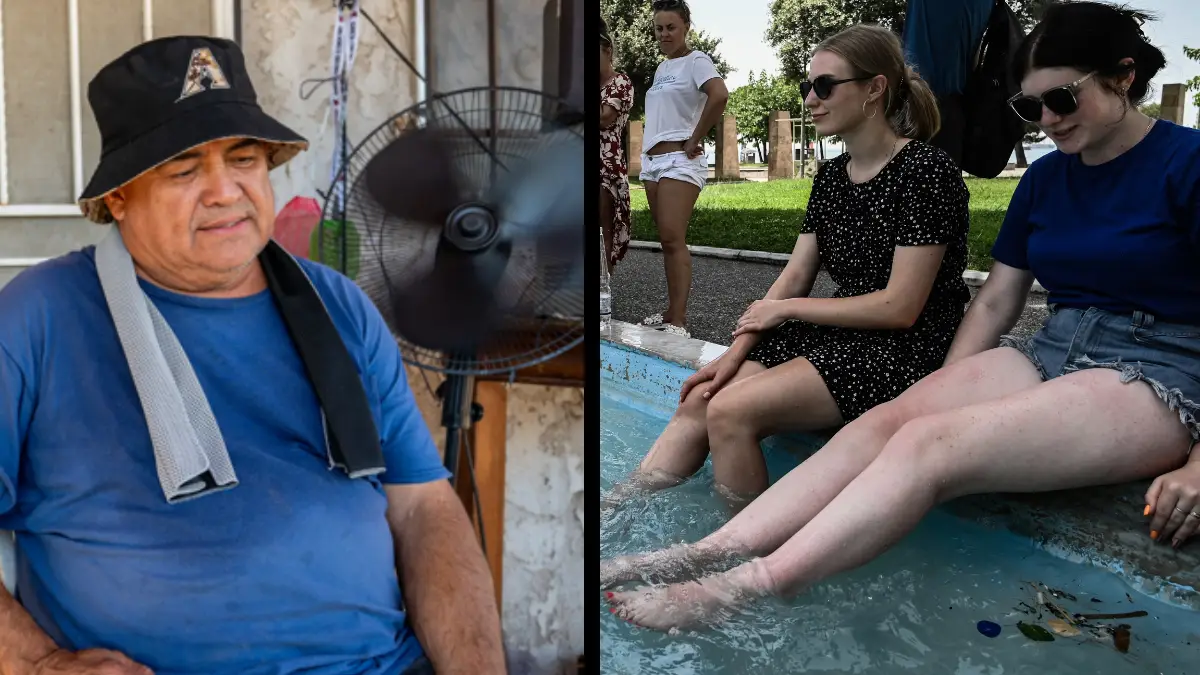
Extreme heatwaves are sweeping Europe and the United States with some people being treated for third degree burns.
In Phoenix, Arizona, mobile clinics are treating homeless people suffering from third-degree burns and severe dehydration.
The city has already endured 15 days in a row of temperatures exceeding 43.3 degrees Celsius.
In the desert city of Palm Springs, homeless people have been left to deal with the extreme heat themselves, with only 20 beds available in the sole shelter.
Advert
Roman Ruiz, the city's homeless services coordinator, told CBS News homeless residents struggle in normal heat to find enough shade.
"I don't know how anyone can do it really," he said.
"I feel so bad, and yet there's not much I can do."
In Mexicali, a city of over a million people on Mexico's northern border, temperatures soared to 50 degrees Celsius last week, forcing many residents to stay inside.
"This weekend there will be some of the most serious and hot conditions we've ever seen," said David Hondula, the city's chief heat officer.
"I think that it's a time for maximum community vigilance."
Across the US, authorities are turning libraries and lobbies into 'cooling centres' for people who need to get out of the heat.
In Greece over the weekend, Acropolis Hill, home to the Parthenon temple that is visited by millions of tourists every year, was closed from noon to 5pm, the hottest part of the day.
Huge crowds had gathered at the site over the weekend, with many drinking from water bottles and fanning themselves or carrying umbrellas. One woman who sat down on the ground was attended to by paramedics.
Others were transported down the hill in golf carts and transferred to wheel chairs.
"Extreme weather events, which are occurring with increasing frequency in our warming climate, have significant impacts on human health, ecosystems, economies, agriculture, and energy and water supplies," said the World Meteorological Organization (WMO) Secretary-General Petteri Taalas in Geneva.
"This underscores the increasing urgency to reduce greenhouse gas emissions as quickly and as profoundly as possible."
The WMO has also announced that the beginning of July was the hottest week on record for the planet.
The UN body said this year had already seen the hottest June on record, driven by climate change and the early stages of an El Niño weather pattern.
“The world just had the hottest week on record, according to preliminary data,” the WMO said in a statement.
The statement added that temperatures were breaking records on land and in the oceans, with 'potentially devastating impacts on ecosystems and the environment'.
“The exceptional warmth in June and at the start of July occurred at the onset of the development of El Niño, which is expected to further fuel the heat both on land and in the oceans and lead to more extreme temperatures and marine heatwaves,” said Christopher Hewitt, WMO director of climate services.
“We are in uncharted territory and we can expect more records to fall as El Niño develops further and these impacts will extend into 2024.
“This is worrying news for the planet.”
Topics: News, World News, Weather
